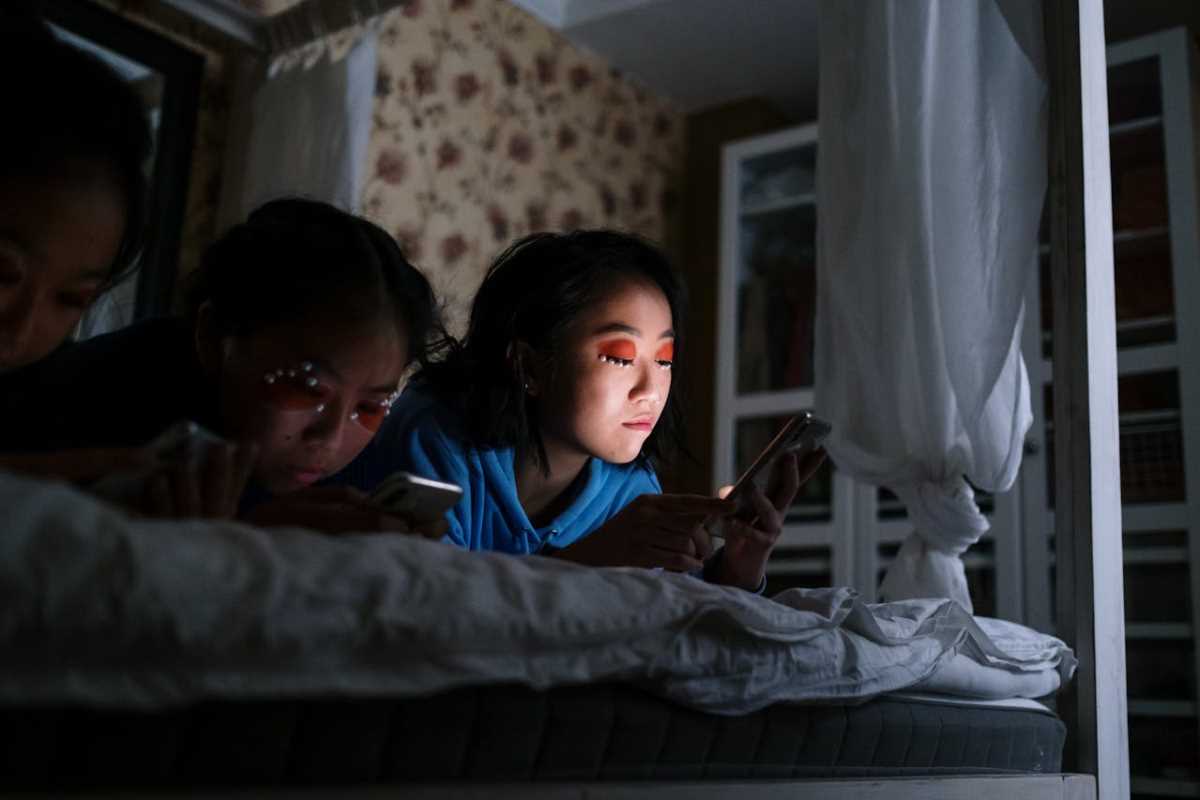Depression is one of the most widely discussed mental health challenges today, and entertainment media plays an important role in shaping the public conversation around it. Netflix, as one of the most influential entertainment platforms, frequently tackles themes of mental health through its dramas. These portrayals can spark meaningful discussions, offering insights into the lived experience of depression. However, they can also be limited by creative oversimplifications or inadvertent glamorization of struggles.
By looking closely at specific examples, we can better understand the platform’s complex role in the mental health conversation.
Dramas That Raise Awareness and Normalize Mental Health Conversations
One of the most notable contributions of Netflix dramas is their ability to bring discussions about depression into mainstream consciousness. By weaving mental health themes into engrossing storylines, these shows reach audiences who might otherwise shy away from such topics.
"13 Reasons Why": Sparking Global Conversations
A prime example of this trend is 13 Reasons Why. The series, which focuses on the life and death of teenager Hannah Baker, centers on themes of bullying, isolation, and depression. Upon its release, it garnered widespread attention and became a catalyst for conversations about mental health, particularly among teens and young adults.
Despite its polarizing reception, 13 Reasons Why brought attention to subjects traditionally discussed behind closed doors. It encouraged viewers to reflect on how their words and actions impact others while offering a touching portrayal of how depression can stem from seemingly small events stacking up over time. The show also pointed viewers toward mental health resources, demonstrating Netflix’s recognition of its influence.
"Bojack Horseman": A Layered Exploration
On a different tonal spectrum, Netflix’s animated drama Bojack Horseman takes a brutally honest look at depression through its main character, a washed-up actor navigating a cycle of self-destruction. What makes Bojack Horseman particularly impactful is its unflinching depiction of the repetitive and often nonsensical nature of depression. Through humor and heartbreak, the series humanizes mental illness without trivializing it, helping viewers relate to or better understand those facing similar challenges.
By shining a spotlight on nuanced struggles like Bojack's, Netflix creates space for audiences to have deeper, more informed discussions about mental health rather than reducing it to simplified narratives.
Fostering Empathy Through Relatable Characters
Netflix dramas excel at creating characters who grapple with depression in ways that feel authentic, helping viewers empathize with those living with the condition. Relatable characters offer multi-dimensional portrayals of mental health, using personal struggles as a lens for understanding the human condition.
For instance, in The Queen’s Gambit, viewers are introduced to Beth Harmon, a young chess prodigy who battles addiction and inner turmoil. Beth’s triumphs and setbacks are vividly depicted, not as a simple arc of recovery but as an ongoing, realistic struggle anchored in her past experiences. This layered representation underscores how depression is not linear and how personal victories coexist with persistent challenges.
Empathy-building dramas like The Queen’s Gambit demonstrate that depression is more than just a set of diagnostic criteria. They remind viewers of the complex emotional experiences driving individuals’ actions, fostering compassion and understanding.
The Risk of Glamorization or Oversimplification
While Netflix has played a significant role in elevating mental health narratives, it has also drawn criticism for problematic portrayals that may hinder meaningful conversations.
"13 Reasons Why": Controversial Consequences
Though 13 Reasons Why deserves credit for igniting global discussions, the show’s framing of Hannah Baker’s story raised concerns about the glamorization of suicide and its potential impact on vulnerable audience members. Critics argued that centering the storyline around Hannah’s posthumous revenge through recorded tapes risked portraying suicide as a means of control or resolution.
The controversy surrounding this series underscores how sensitive mental health topics require careful handling to avoid unintended consequences. While artistic expression remains critical, creators must also consider social responsibility, particularly when addressing issues affecting young audiences.
Romanticizing Dysfunction as Depth
Beyond 13 Reasons Why, dramas sometimes blur the line between portraying mental struggles authentically and romanticizing dysfunction. Shows like Bojack Horseman or Russian Doll can inadvertently reinforce the trope of the “tortured genius,” implying that creativity and brilliance are inseparably tied to suffering. While such stories resonate deeply with some viewers, they can subtlety perpetuate the idea that excelling in life or art comes only through enduring pain, normalizing acceptance of unmanaged mental health challenges.
Oversights in Diversity of Experiences
Another notable shortcoming is the lack of inclusive representation in some shows. Depression manifests differently based on cultural, racial, and socio-economic contexts, yet many Netflix dramas portray it through a narrow lens, often centralized around white, middle-class characters.
Although The Eddy showcases mental health themes alongside racial diversity, shows like 13 Reasons Why rely heavily on a homogenous character base. By focusing primarily on one perspective, Netflix misses an opportunity to explore how depression intersects with societal inequalities, leaving some viewers underrepresented in these narratives.
Expanded diversity in mental health portrayals not only enriches storytelling but also ensures that more viewers feel seen and validated in their own experiences.
Encouraging Viewers to Seek Support
On the brighter side, many Netflix dramas explicitly encourage viewers to reflect on their mental health and seek support if needed. Shows like Sex Education tackle depression within broader conversations about therapy and self-care, normalizing counseling services and de-stigmatizing help-seeking behavior.
The character of Jean Milburn, a sex therapist, creates a space for discussing mental health within Sex Education. Her open conversations around emotional well-being inspire not only her patients but also viewers to consider therapy as a viable option for their struggles. Such portrayals actively challenge harmful taboos around professional mental health care.
Similarly, Netflix sometimes pairs programming with external resources. For example, following 13 Reasons Why, the company introduced warnings, supplementary discussions, and links to mental health helplines, signaling its commitment to addressing issues responsibly.
Missteps in Addressing Systemic Causes
While Netflix dramas often excel at exploring personal mental health experiences, they sometimes overlook larger systemic causes. Depression is frequently tied to societal pressures such as overwork, economic instability, or cultural expectations, but these factors often remain unexplored in favor of more individualized character arcs.
Shows like Dead to Me hint at systemic contributors to stress and depression, such as grief, trauma, and broken relationships, but stop short of broader societal critiques. Addressing systemic triggers as part of mental health narratives would deepen the conversation, helping audiences understand depression not just as an individual burden but as a condition shaped by external forces.
The impact of Netflix dramas ultimately depends on striking a balance between creative storytelling and thoughtful representation. When done right, these shows become more than just entertainment; they serve as tools for dialogue, reflection, and healing in the ongoing effort to better understand and address depression.
 (Image via
(Image via





